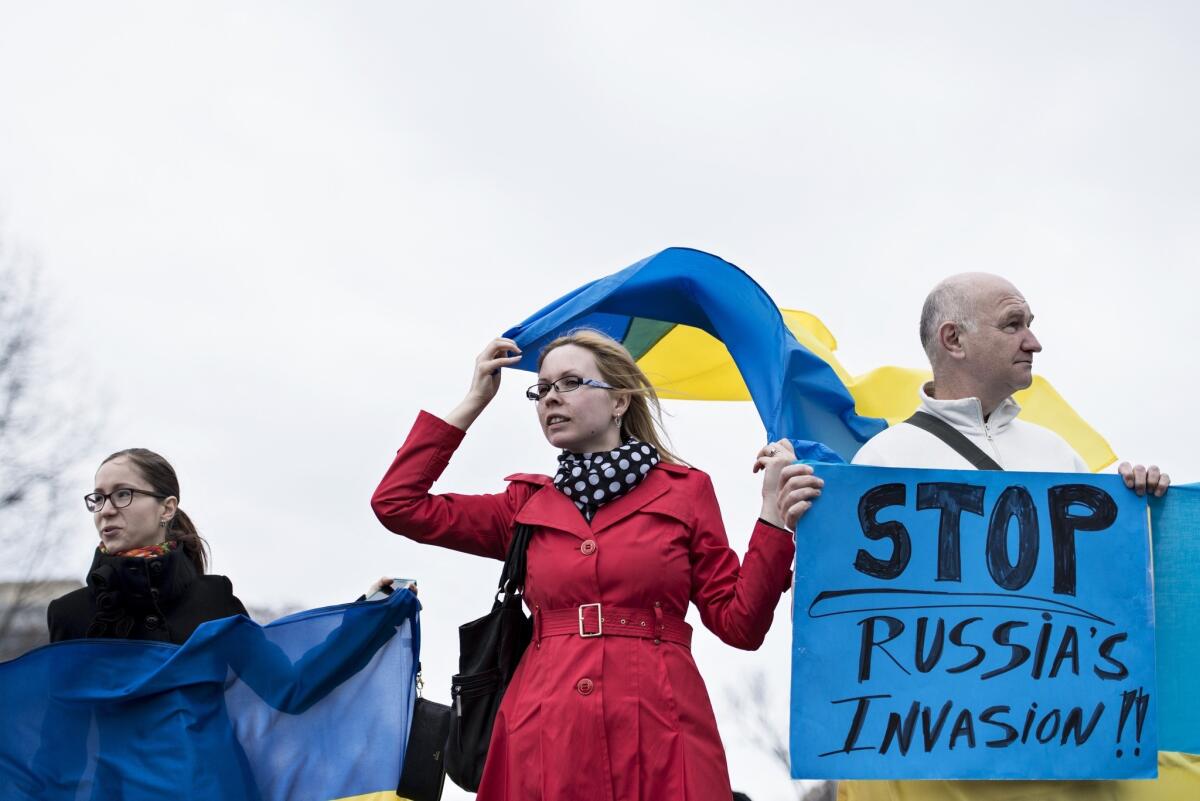Russia’s advantage

The European Union and the United States recognize that there are ways they could play constructive roles in resolving the Ukraine crisis. But some of the suggestions revolving around natural gas and oil being floated suggest a profound misunderstanding of the politics, economics and geography of energy in the region. The notion that Europe and Ukraine could somehow become independent of Russian energy resources is utterly unrealistic.
Russia is a resource economy, a Saudi Arabia with lots of imperial baggage. President Vladimir Putin is well aware that without gas and oil sales, there are no monthly payments to his nation’s pensioners, there are no continued investments in infrastructure along the lines of what we saw in Sochi. He also knows that Europeans are not willing to risk economic ruin by using their considerable imports of Russian energy as a negotiating tool in resolving this crisis. Talking about energy with a unified voice has never been a strong suit in Europe, but it is now clear that Europe does have leverage and can use its considerable codependence with Russia.
The EU has made clear to Putin that the South Stream gas pipeline he is ramming through the Black Sea en route to the EU, bypassing Ukraine, is off the table until the crisis has been resolved. This gesture sends an important message that Europe strongly disapproves of Russia’s behavior in Ukraine. However, the underlying reality is that relations between Europe and Russia will be deeply intertwined well into the future. Some recent news coverage suggests that Europe and Ukraine have a future without Russian energy resources. This is a myth.
OPINION L.A.: How curbing climate change can prevent Russia from becoming a superpower
In the U.S. there have been loud cries to, as a Wall Street Journal editorial put it, “unleash North American oil and gas on the world.” Several U.S. politicians have demanded that President Obama lift the ban on liquefied natural gas (LNG) exports immediately, as if this would have any impact in the short term on Ukraine or Russia. In short order, and taking a card from Putin’s playbook, the political establishment has rapidly adopted the mentality of a petro state: divide and conquer by means of resources.
It is “us” against “them,” and in this rather naive view, shale gas and oil can be “our” weapons. There are several problems with this line of reasoning. Unlike Russian energy giant Gazprom, U.S. energy companies are not state-owned. Gas and oil companies are profit-seeking enterprises, and they typically are keen to steer clear of geopolitics. So how realistic is this carbon-bullying role that some would like the U.S. to play?
We think not very. First, U.S. exports of LNG are far in the future, and currently uncertain. The legal and regulatory framework has substantial limitations. For the LNG that does get to the market, price will dictate where the product flows. New supplies from other parts of the world also are coming on-stream, and it is not clear that North American natural gas will be competitive on European markets.
In theory, buyers could of course be so interested in natural gas from the U.S. that they would be willing to pay a premium over the normal price. Examples of this approach are very rare. Allegedly Poland is going to pay substantially more for its contracted LNG from Qatar than it has been paying to Gazprom. If this is true, this is an exceptional act. We would not expect Ukraine to make a similar decision, not least because there is no infrastructure in place or planned on the country’s Black Sea coast to import LNG.
What recent history in Ukraine has shown us is that further market integration can be very effective. Last year the country was importing an increasing amount of natural gas from Poland and Hungary, and as a result Gazprom offered Ukraine’s then-President Viktor Yanukovich a significant discount on gas prices. With more liquidity in the Ukrainian market and the future prospects of developing its domestic shale gas resources, there is the prospect that in a decade or so Ukraine could become a trading hub itself instead of a transit country. At the moment, though, the major concern is the deplorable state of the Ukrainian economy, which has received substantially less media attention that it did during the 2006 natural gas crisis.
This example tells us that longer-term sustainable solutions to the current situation in Ukraine are not found in petro-state politics, as some voices in Washington would have us believe. The underlying politics and history in the region are simply too complicated to hope for an outcome that sees Ukraine snubbing Russia and falling into a Western embrace, all while burning American shale gas. The principles of sovereignty and territorial integrity require putting pressure on Russia through sanctions and diplomacy. Meanwhile, Europe must step up its efforts to further integrate (still) nationally oriented gas markets, in particular those in Central and Eastern Europe, and should include Ukraine in its efforts.
Tim Boersma is a fellow in the Energy Security Initiative at the Brookings Institution. Corey Johnson is an assistant professor of political geography at the University of North Carolina in Greensboro.
More to Read
A cure for the common opinion
Get thought-provoking perspectives with our weekly newsletter.
You may occasionally receive promotional content from the Los Angeles Times.










